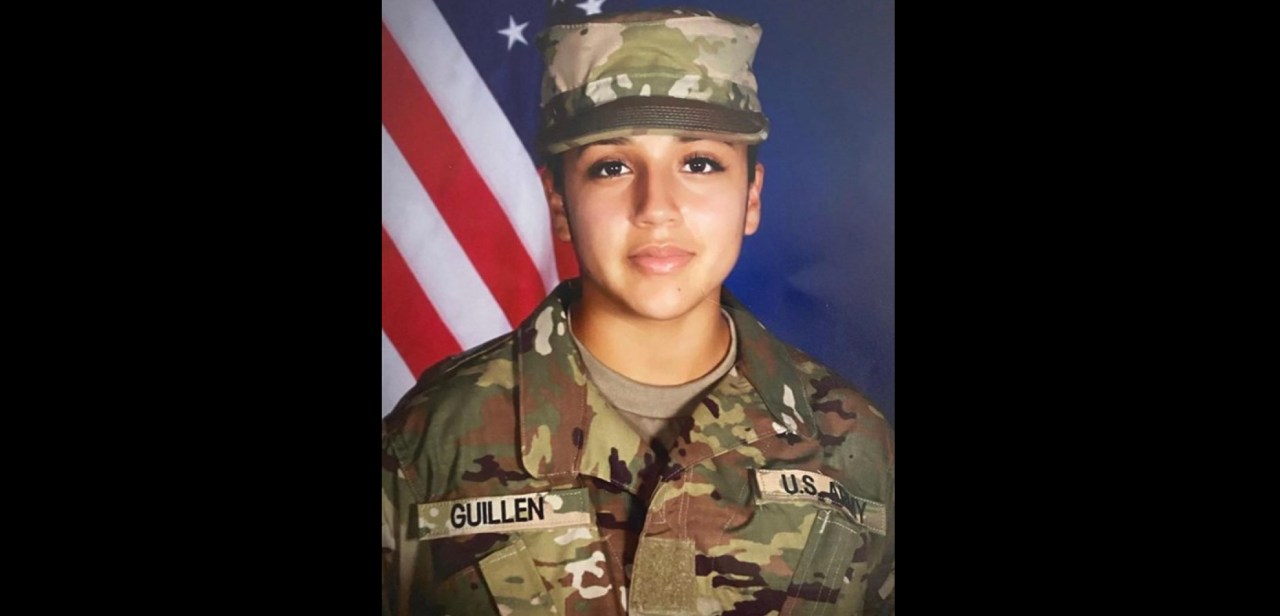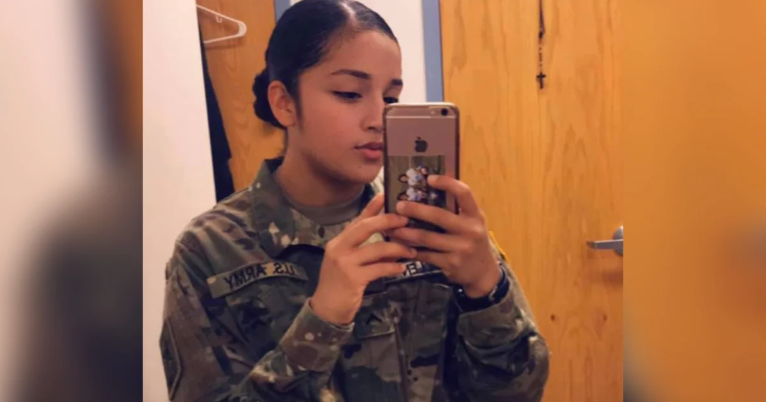
A Soldier Told Her Family Someone Was Harassing Her. A Few Days Later, She Was Dead.
"You talk about all these gate checks and all these security checks... yet someone goes missing? This doesn't happen."
In April 2020, 20-year-old Vanessa Guillén was U.S. Army soldier stationed at Fort Hood in Texas. A native of Houston, she had graduated in the top 15% of her high school class in 2018 and immediately enlisted. She became a private first class in the Army trained as a 91F, Small Arms and Artillery Repairer.
On April 22, 2020 Vanessa Guillén wasn’t at her shift at Fort Hood’s armory. Her phone, purse and keys were there, but Guillén had disappeared. This was extremely out of character for Vanessa or for any soldier in the Army, where showing up on time is mandatory and movements on and off base are monitored. She was reported missing and received media attention as both the army and her family tried to locate her. For two months people searched for Vanessa. Eventually a $50,000 reward was offered. Even celebrities like Selma Hayek shared messages on social media drawing attention to Guillén’s disappearance, and the important events preceding it:
In the days leading up to her disappearance, Vanessa had told her family she was being sexually harassed by another soldier. She did not identify the soldier by name. When her family advised her to report the harassment, Vanessa declined, saying other women had already tried reporting the soldier and it hadn’t worked. Those women had also been viewed negatively by other soldiers and faced retaliation. Vanessa hoped to avoid that fate by managing the harassment alone.
The army initially stated they did not find the information “credible” that Vanessa Guillén was sexually harassed by another soldier.
Other investigators (multiple civilian police departments and the FBI became involved as the case went on) went through Vanessa’s schedule to try to determine who the mysterious soldier she had complained about was. On June 30, 2020 dismembered human remains were found in a river 20 miles away in Belton, TX in what one investigator called “the most sophisticated burial site he had ever seen”. The remains were later identified as Vanessa Guillén.
Investigators believe Vanessa was on-duty at work in the armory when her supervisor, Spc. Aaron David Robinson, attacked her with a hammer, killing her. Robinson cleaned up the significant blood spatter in the armory. He then called his girlfriend, 22-year-old Cecily Anne Aguilar, to help him dispose of Vanessa’s body. After being unable to burn her body, the two dismembered her with a machete and then buried her near the river. She was only found because her body was dug up by animals.
Shortly after, police were able to record a damning conversation between Aaron David Robinson and Cecily Anne Aguilar in which they discussed the police finding their “pieces” punctuated by sharing links to news stories about the recovery of Vanessa’s body. There was an attempt to take Aaron David Robinson into custody. He shot himself instead. Vanessa’s mother believes this official story is false, citing witnesses who heard multiple gunshots. She has stated she believes Robinson was executed by the army as part of a cover-up conspiracy.
A lawyer for Vanessa Guillén’s family said:
“This shouldn’t be happening…This is on a federal government base. A military base. There has to be more accountability. And [there are] more protections and safeguards than anywhere else. How can you not have these answers? The irony. You talk about all these gate checks and all these security checks… yet someone goes missing? This doesn’t happen. And the fact that, she wasn’t even supposed to be working that day. She was off that day. Why did they call her in?”
The army has not answered requests for them to comment on how Spc. Aaron David Robinson was able to leave the base with Vanessa’s body, how they missed so much blood in the armory, why Robinson’s sexual harassment wasn’t taken seriously, or why it took so long to solve what should have been a straightforward crime.
However, after immense pressure from the public, an independent review was ordered. After six months, the review concluded and the army publicly released or suspended 14 senior officers for their actions or non-actions related to the Vanessa Guillén investigation. The review found that “during the review period, no Commanding General or subordinate echelon commander chose to intervene proactively and mitigate known risks of high crime, sexual assault and sexual harassment” which “resulted in a pervasive lack of confidence, fear of retaliation, and significant underreporting of cases, particularly within the enlisted ranks.”
They blamed Vanessa’s murder on leadership failures at Fort Hood, saying “there was a permissive environment for sexual assault and sexual harassment at Fort Hood. We have recommended changes to the staffing, structure and implementation of the SHARP program at Fort Hood, and possibly beyond, to address deeply dysfunctional norms and regain Soldiers’ trust.” The army has released a list of the high level leaders who were disciplined following the independent review:
Relieved of duty for actions/non-actions related to Vanessa Guillén’s murder:
Maj. Gen. Scott L. Efflandt
Col. Ralph Overland
Command Sgt. Maj. Bradley Knapp
Suspended from duty for actions/non-actions related to Vanessa Guillén’s murder:
Maj. Gen. Jeffrey Broadwater
Command Sgt. Maj. Thomas C. Kenny
Other soldiers who were disciplined were lower ranking and the army’s policy is to only release names of leaders above a certain rank. A quick Google search shows that at least one of these leaders has since been reassigned to another high-ranking military position. Jury selection has begun in Cecily Anne Aguilar’s trial for conspiracy to tamper with evidence and tampering with evidence, crimes which carry sentencing guidelines of up to 20 years in prison each.











